







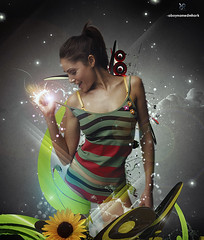


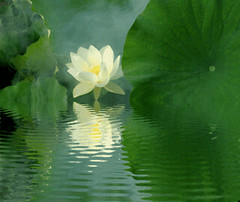








Love this photo by my buddy, Martina. Seemed like an appropriate image to wish everybody a Merry Christmas and happy holidays, whereever you are in this big wide world. I'm taking a blogging break to go have myself a holiday.
Thanks, everybody! Stop back in a few days. I'll get my blogging butt in gear and try to find you some year-end fabulousness.
peace,
bb


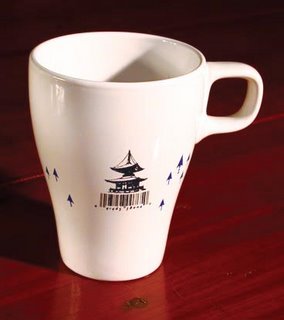
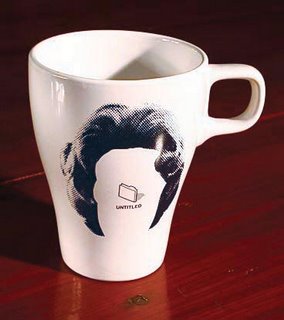



Wuqing
Many people consider Zhuangzi, the great Daoism philosopher, as an utterly free but cold person. This is largely because of his claim of wuqing. Yet to understand Zhuangzi’s wuqing simply as “without feelings, emotions or passions” is superficial and it’s far from his true intent. Zhuangzi, as I understand him, also has feelings about human life, but he is alert to the possible harm qing could do to his body, which is given by tian, therefore, he tries to use li (理) to free himself from it.
One reason account for Zhuangzi’s content of wuqing is that you (being, existing) and wu (non-being, non-existing), sheng (living) and si (dead) are the same; they are bound together in an interchanging circle.
When Chuang Tzu's wife dies, Hui Tzu went to condole. He found the widower sitting on the ground, singing, with his legs spread out at a right angle, and beating time on a bowl.
'To live with your wife', exclaimed Hui Tzu, 'and see your eldest son grow up to be a man, and then not to shed a tear over her corpse, this would be bad enough. But to drum on a bowl, and sing; surely this is going too far.'
'Not at all', replied Chuang Tzu. 'When she died, I could not help being affected by her death. Soon, however, I remembered that she had already existed in a previous state before birth, without form, or even substance; that while in that unconditioned condition, substance was added to spirit; that this substance then assumed form; and that the next stage was birth. And now, by virtue of a further change, she is dead, passing from one phase to another like the sequence of spring, summer, autumn, and winter. And while she is thus lying asleep in Eternity, for me to go about weeping and wailing would be to proclaim myself ignorant of these natural laws. Therefore I refrain.' 1
Here Huishi represents the conventional perception of life and death, that life is something to be cherished and death is something to be mourned. On the contrary, Zhuangzi views death from a position higher than conventional emotions, appearing calm and rational. In Zhuangzi, the boundary between life and death doesn’t exist for they are forever transforming from one to another just like the sequence of spring, summer, autumn, and winter. Many critics have opposed Zhuangzi on this point, for instance, in the Preface of The Orchid Pavilion, the great writer, XiZhi Wang writes: “Well I know it is a lie to say that life and death are the same thing, and that longevity and early death make no difference!” 2
In a passage where Zhuangzi mentions the forms of qing: “Joy and anger, sadness and pleasure, anticipation and regret, fickleness and fixedness, vehemence and indolence, eagerness and tardiness”, he says: “(all these moods), like music from an empty tube, or mushrooms from the warm moisture, day and night succeed to one another and come before us, and we do not know whence they sprout. Let us stop! Let us stop! Can we expect to find out suddenly how they are produced?” It seems that qing to Zhuangzi is vague and traceless. He goes on to say that “It might seem as if there would be a true Governor concerned in it, but we do not find any trace (of his presence and acting). That such an One could act so I believe; but we do not see His form. He has affections, but He has no form.” 3This true Governor who has affection but no form appears to me as natural alterations in moods and feelings.
But when it comes to the sage, Zhuangzi contents that “He has the bodily form of man, but not the passions and desires of (other) men” because “The sagely man lays no plans;-- of what use would wisdom be to him? He has no cutting and hacking to do;-- of what use would glue be to him? He has lost nothing;-- of what use would arts of intercourse be to him? He has no goods to dispose of;-- what need has he to play the merchant? (The want of) these four things are the nourishment of (his) Heavenly (nature); that nourishment is its Heavenly food. Since he receives this food from Heaven, what need has he for anything of man's (devising)?”4 And as a result of not having the feelings of a man, “right and wrong cannot get at him.”5 Here we could see the notion of “right and wrong” (shi/fei) is brought up the table. It seems that the virtue of being without feelings is that people are excluded from the troubles of shi/fei . This connection between shi/fei and qing is clearer stated in the following text:
Hui Tzu said to Chuang Tzu, "Can a man really be without feelings?"
Chuang Tzu: "Yes."
Hui Tzu: "But a man who has no feelings-how can you call him a man?"
Chuang Tzu: "The Way gave him a face; Heaven gave him a form - why can't you call him a man?"
Hui Tzu: "But if you've already called him a man, how can he be without feelings?"
Chuang Tzu: "That's not what I mean by feelings. When I talk about having no feelings, I mean that a man doesn't allow likes or dislikes to get in and do him harm. He just lets things be the way they are and doesn't try to help life along."
Hui Tzu: "If he doesn't try to help life along, then how can he keep himself alive?"
Chuang Tzu: "The Way gave him a face; Heaven gave him a form. He doesn't let likes or dislikes get in and do him harm. You, now - you treat your spirit like an outsider. You wear out your energy, leaning on a tree and moaning, slumping at your desk and dozing - Heaven picked out a body for you and you use it to gibber about `hard' and `white'!" 6
In this passage, Zhuangzi’s recognition of the ability of distinguish shi/fei as the unique character of human beings seems to resonate with the teachings of Mencius and Xunzi. As Xunzi says: “[A human being] is not as strong as the ox, nor as swift as the horse, and yet he makes the ox and the horse work for him. Why? Because he is able to organize himself in society and they are not. Why is he able to organize himself in society? Because he sets up hierarchical distinctions” 7However, Zhuangzi’s attitude towards this ability are almost exactly the opposite of these held by the other Confucian philosophers. In another word, while Mencius and Xunzi advocate this ability of mankind, saying man should exercise it to a full extent in order to be a complete human being, Zhuangzi preaches that it is exactly the ability one should do without. Because it seems that the other Confucian philosophers’ goal is to be make the full use of the capacities of human, to be as human as possible, the goal of Zhuangzi is to be a sage, which is as far from human and conventional life as possible. Just as Slingerland says, “Indeed, the tendency to fall under the sway of shi/fei distinctions seems to Zhuangzi to be a deeply rooted human disposition: he refers to it as the ‘essence’ (qing) of human beings (i.e. that which distinguishes human beings from other living beings), and describes it as something that the Daoist sage must learn to do without”.8
So according to Zhuangzi, how should we lead our lives? Zhuangzi hasn’t provide us with a straight forward answer, because to do so means he has to dictate some doctrine or principle upon people, telling them shi/fei, which runs into contrary with the Daoism principle that everything revolves in a cycle. So what Zhuangzi does is to give us a description of a person who leads a life he advocates. Zhuangzi says: “The True men of old knew nothing of the love of life or of the hatred of death. Entrance into life occasioned them no joy; the exit from it awakened no resistance. Composedly they went and came. They did not forget what their beginning bad been, and they did not inquire into what their end would be. They accepted (their life) and rejoiced in it; they forgot (all fear of death), and returned (to their state before life).” And the result of this is that in those people there are “what is called the want of any mind to resist the Tâo, and of all attempts by means of the Human to assist the Heavenly”.9
This shows a picture of a truly free man, who has reached a state of which Zhuangzi calls xiao yao. Such a man is wuqing. Since the boundaries of men are created by his surroundings, by being wuqing, not caring about the surroundings, the True men can do anything he wants and are not bound to the conventional principles, or restricted by shi/fei. Wuqing means he has no desires, feelings, attitudes, or positions. He would not argue with people and he would not be argued against. He doesn’t care other people’s opinions to him, thus he could be truly independent in his conducting and thinking. This “advice seems unable to conform to the actual human situation. One may push a bit further in interpretation: If one follows Zhuangzi’s advice and abandons his existing desires, feelings, and ideas, he then no longer insists on any certain thing. As a consequence, he enters a field in which his current ideas, attitudes, and positions will lose control of him. Such a release will enable him to transform into a stage of life containing new ideas, attitudes, and positions.”10
It seems that Zhuangzi endorses a kind of disconnectedness with one’s surroundings and that he tents to cut off one’s relationships with the outside, however, it is not the case. The purpose of wuqing is not wuqing itself, but to avoid hurting one’s body which is given by the heaven and considered “true” (zhen). He contents that one should use li to reform qing and let qing follow li. Wangbi, a great scholar of the Wei Era, best describes this idea of wuqing: “conforms to subjects but not to be burdened by them” (應物而不纍於物).
Digging into the bottom of Zhuangzi’s idea of wuqing, we could see that it actually comes from the notion of “one and thousand as the same” (齐一万物)and “life and death as the same” (混同生死), which rooted in the Daoism philosophy as early as Laozi.
This reminds me of what is said in the Daodejing about the heaven and earth being wu qing ( or as later found in earlier text as bu ren ): “Heaven and earth do not act from (the impulse of) any wish to be benevolent; they deal with all things as the dogs of grass are dealt with. The sages do not act from (any wish to be) benevolent; they deal with the people as the dogs of grass are dealt with.”11 As Roger Ames comments: “Repeatedly the Daodejing expresses a fascination for the way in which an indeterminate source spontaneously and inexhaustibly gives rise to the provisionally determinate phenomena that we experience around us… Rather than relying upon externally acquired and often ineffectual learning, we should look to this inner source.”12
1 Chuang Tzu. Chuang Tzu. Translated by Herbert A. Giles. First edition, 1889; second edition, 1923. Chapter 18
2 Yutang, L., 1998. The Importance of Living. City: Perennial Currents. Xizhi Wang, Translated from The Orchid Pavilion by Yutang Lin
3 James Legge, The Writings of Chuang Tzu, Julian Press (1959). Khî Wû Lun, or 'The Adjustment of Controversies.'
4 Ibid. Teh Khung Fû, or 'The Seal of Virtue Complete.'
5 Watson, Burton. Basic Writings of Chuang Tzu. New York: Columbia University Press, 1996. The Sign of Virtue Complete
6 Ibid. The Sign of Virtue Complete)
7 Hs ̈un Tzu: Basic Writings. Translated by Burton Watson. New York: Columbia University Press. 1963. 45
8 Edward Slingerland. Effortless Action: Wu-wei As Conceptual Metaphor and Spiritual Ideal in Early China. Oxford University Press, USA, 2006. P286
9 James Legge, The Writings of Chuang Tzu, Julian Press (1959). Tâ Tsung Shih, or 'The Great and Most Honoured Master.'
10 Wenyu Xie, Approaching the Dao: From Lao Zi to Zhuang Zi, Journal of Chinese Philosophy Volume 27, Issue 4, Page 469-488, Dec 2000
11 Lao-Tse, The Tao Teh King [Daodejing], Or The Tao And Its Characteristics . Translated by James Legge. Chapter 5
12 Ames, Roger and Henry Rosemont. Daodejing “Making This Life Significant”. New York: Ballantine Books/Ballantine Pub. Group, 2003. 25




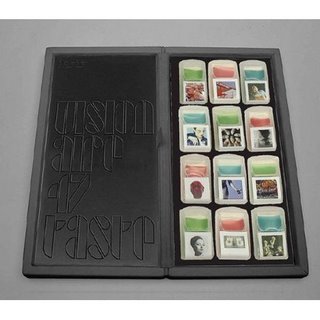

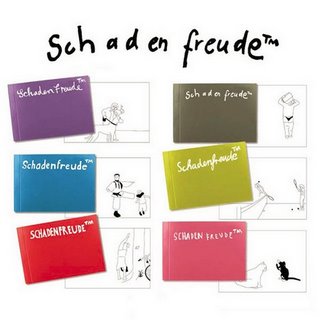





Walking Towards the Horizon
To translate the title Daodejing, one must first have a basic understanding of the book itself. The discussion in the book could roughly be divided into two parts: one about dao, and one about de. While there are hundreds of different translations of the book, people’s translations of dao are more or less the same: many as “way, path, etc”, most just leave it alone. Many scholars, however, disagree on the translation of de. So my first attempt to translate the title is by rendering a felicitous translation of de. But I failed because as I was looking for evidences in the book to support my translation I find it impossible to discuss, let alone having a clear understanding of, de without looking at it along with “dao, wuwei, wuming”. In the same way, it is impossible to discuss any of the other three terms without viewing the rest.
While it is difficult to give a translation straight away, it is relatively clear to me what kind of ideas I want to convey in my translation. First, the dao should be a word that could be used both as a verb and a noun. Second, the direction of the dao should be toward something good and grand. Because no matter how de is translated, it could by no means be defined as vice or evil. And since the book mainly talks about cosmos and governing, the dao should be broad enough to carry tian. Third, the approach to dao and de is natural/ spontaneous and noncoercive. Fourth, the title should suggest a sense of continuity and transforming. The former two is easy to accomplish in a translation, whereas it is difficult to find the English equivalency of dao and de that can express the meaning of both naturalness and transforming.
Eventually, I came up the translation “Walking Towards the Horizon”. This is by no means the best translation, however, I believe it is a more expressive translation than most other ones.
“Walking” gives a sense of spontaneous progressing, and it constant with one meaning of dao as road. “Towards” gives a sense of direction, suggesting it’s moving along the direction to something good. The word “horizon” is far from what generally held as de, but I think it is this word that livens the whole translation up.
When you think about horizon, what comes into your mind? Grand, endless, sun-rise and sunset, the sky meets the earth. At the same time, though it doesn’t say anything about virtue or moral, it gives people a feeling of magnificence and greatness. This is because, as far as I’m concerned, people are usually in awe with something grand, and moreover, people have the presumption that tian is always virtuous and right. Such assumptions could be seen from a number of Chinese Classics, including the ones we learnt, namely Zhongyong, in which it discusses people’s natural tendencies as given by the heavens. One interesting aspect of this is the fact that the horizon did nothing to make itself magnificent or great yet is perceived so is consistent with Daodejing’s notion of “wuwei and therefore achieve greatness”.
In addition, because no matter for how long you walk towards the horizon, it never ends and is forever expending/ stretching forward; this can give you a sense of continuity. It is also interesting to ask when that happens whether you have really got closer to the horizon or not? The answer of this question maybe find in the book’s discussion of youwei and wuwei. Furthermore, youwei and wuwei, just as the sunrise and sunset, is forever transforming from one to another.
Another reason why I propose the translation “Walking Towards the Horizon” is that I believe nothing can better put human being, the earths and the heavens into context than the picture of human beings walking towards the horizon.
From my above explanation, you could see that I place much importance on spontaneity, noncoerciveness, continuity and transforming. It is because I believe Daodejing does the same.
Human beings emulate the earth,
The earth emulates the heavens,
The heavens emulate way-making,
And way-making emulates what is spontaneously so (ziran).1
This passage tells us the working of the human and cosmos. It correlates human beings with the earth, the heavens, way-making and ziran (nature), and put ziran on a fundamental position. Ziran, what is spontaneously so, implies that no deliberate human effort or influence is needed, i.e. wuwei.
Wuwei doesn’t mean doing nothing; it means noncoercive, going with what is naturally so. Everything has its natural tendencies. Letting these tendencies carry out by themselves can realize their potentials. That is why Daodejing says: “One does things noncoercively, and yet nothing goes undone.”2 And when this idea applied to governing, it is also effective: “It is simply in doing things noncoercively (wuwei) that everything is governed properly.”3
Moreover, this wuwei is in close connection with the notion of wuming. Those wuwei should remain wuming because “Way-making (dao) is really nameless (wuming).”4 and “To retire when the deed is done is the way (dao) that tian works.”5 So wuming is one aspect of dao, as it is one aspect of tian.
Laozi also says: “The highest renown is to be without renown, They do not want to be precious like jade, But common like stone.” 6 But to understand “common as stone” as banal is far from what the original text wants to say. As far as I’m concerned, “common as stone” suggests not draw attention to oneself, and what’s more, because jade is precious and mostly processed, “common as stone” also indicates living in a rich context/ environment, and being natural and modest.
Then there is the notion of continuity and transforming. In Daoism, everything is forever changing. Nothing has only one form. For example, water could appear in the form of ice, water or steam; it also could appear in lakes, rivers, or oceans. These different forms of water could easily transform to one another, in addition, the different water bodies are constantly exchanging their containing water.
Perhaps the most prominent idea in Daoism is transforming, changing from one side to the opposite. It’s the way to maintain the continuity. It is common knowledge that the sun rises and then the sunsets, day becomes night. Day to night, as sunrise to sunset, are the opposite of each other. Time is what works in between them, transforming them to another. Yet without this transformation, time would have no meaning, it would not continue, a new day would not begin. Similarly, we are born to die.
“Returning” is how way-making (dao) moves,
And “weakening” is how it functions.
The events of the world arise from the determinate (you),
And the determinate arise from the indeterminate (wu).7
So as we were born and filled with life, we are actually weakening and getting closer and closer to death every minute. It seems that the world spins, but never makes much progress as it would always return to its original form. Does this mean Laozi, or Daoism is pessimistic? I don’t think that way.
I see you and wu as two sides of an apple, the one facing you is you, and the one opposite you and thus you can’t see is wu. Now even if the wu part of the apple is bitten, when you see the unbitten side of the apple (you), you would still think the apple is a whole, that the wu part is the same as the you part. But you are deceived. How could a small apple deceive human beings, the supreme beings in the universe? Why are we so readily to make assumptions of something opposite us? The answer is quite simple. It’s because we all know that apple, as well as any other things, could not only have one side. Even a piece of paper, no matter how thin is it, it has to have two sides. The existence of one side is on the condition of the existence of the other. In this apple analogy, the complete side couldn’t exist if not for the bitten side just as you and wu are interdependent and non could exist without the other.
In Lau’s translation of Passage 42, it says:
The way begets one;
One begets two;
Two begets three;
Three begets the myriad creatures.
The myriad creatures carry on their backs the yin and embrace in their arms the yang
and are the blending of the generative forces of the two. 8
Ames contextualized the vogue terms and rendered a translation as follows:
Way-making gives rise to continuity,
Continuity gives rise to difference,
Difference gives rise to plurality,
And plurality gives rise to the manifold of everything that is happening.
Everything carries yin on its shoulders and yang in its arms
And blends these vital energies (qi) together to make them harmonious.9
The metaphor of yin on shoulders and yang in arms are similar to that of you and wu. But Daodejing does not stop on the coexisting and transforming of the opposites, it brings the relation of you and wu to a new level by saying they are co-consummate. The Daodejing says:
Crimped then whole,
Warped then true,
Hollow then full,
Worn then new,
Modest then satisfied,
Demanding then bewildered.
Is it for this reason that the sages grasp oneness
To be shepherds to the world.
Those who are not self-promoting are distinguished,
Those who do not show off shine,
Those who do not brag have lots to show,
Those who are not self-important and enduring.
It is only because they do not contend
That none are able to contend with them.10
To Laozi, the consummation of anything is based on not deliberately perusing it, only then can one acquire it through natural course. Otherwise, it would be like someone who is chasing the horizon, ends up exhausting himself without gaining anything.
Based on the above analysis of the Daoism notion of cosmos, spontaneity, transforming, I propose the translation of Daodejing as “Walking Towards the Horizon”. Nevertheless, I realize my translation is by no means perfect; it has limitations as to explaining the relationship between dao and de and how each or both works on people. Much discussion and a careful study of not only Laozi, but all Daoism works, is needed for rendering a felicitous translation to the title.
1 Ames, Roger and Henry Rosemont. Daodejing “Making This Life Significant”. New York: Ballantine Books/Ballantine Pub. Group, 2003. 25
2 Ibid. 48
3 Ibid. 3
4 Ibid. 32 & 37
5 Ibid. 9
6 Ibid. 39
7 Ibid. 40
8 Tzu, L. & Lau, D. C., (1994). Tao Te Ching. City: Everyman's Library. 42
9 Ames, Roger and Henry Rosemont. Daodejing “Making This Life Significant”. New York: Ballantine Books/Ballantine Pub. Group, 2003. 42
10 Ibid. 22
1




